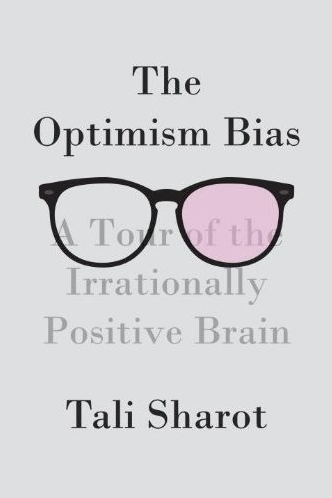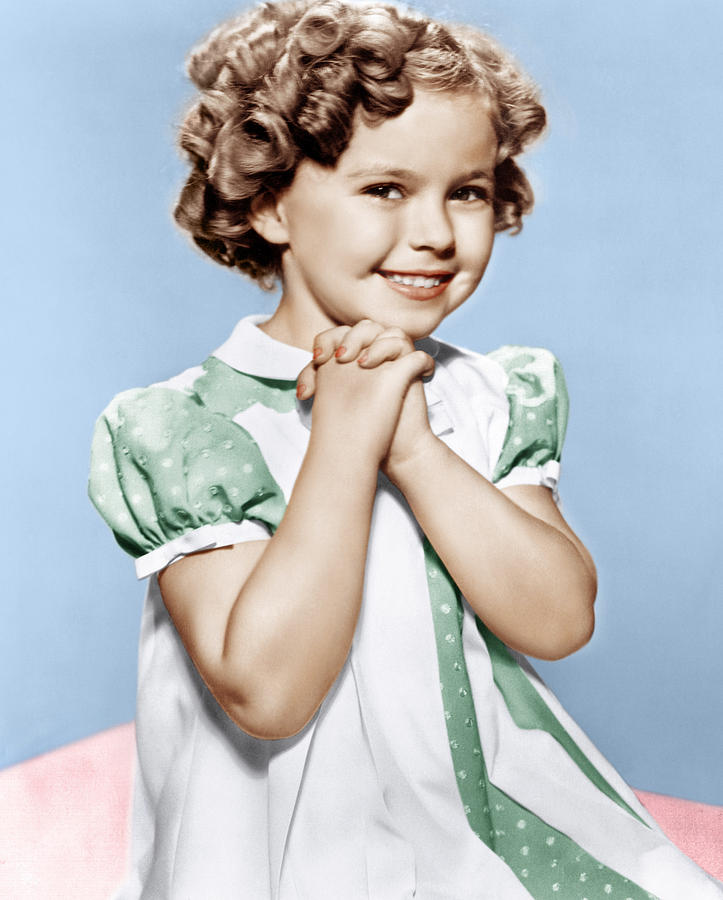Wallace, Kelsey Book Report
Introduction:
The book "The Optimism Bias" written by Tali Sharot highlighted many ideas and concepts that induce or effect optimism in humans. This book discusses many interesting topics such as predicting your own happiness and the commonalities between Barack Obama and Shirley Temple. It seems that this book's aim is to educate its readers on how our minds can be different from one another and also how humans hold an optimistic outlook on life even when it is not expected.
Chapter 4:
 This chapter was entitled "What do Barack Obama and Shirley Temple have in common" In this chapter there were many different concepts discussed. The first idea discussed is that optimism is relied on much more often in hard times that in good times. This is because people's urgent need for good news may drive positive expectations well above what is normally expected at that time. An example of this would be, if a single mother did not have the funds to support her children she would be more than likely to try and find the "silver lining" in her situation, in order to make the best of it. This chapter really highlighted that humans use optimism even in times when you would expect optimism to be used the least. In the prior example, it is common to think the single mother would be upset and worried but while this may be the case, she is likely to exhibit positive emotions (aka optimism). This helps the single mother cope with the stress and fear of support her children.
This chapter was entitled "What do Barack Obama and Shirley Temple have in common" In this chapter there were many different concepts discussed. The first idea discussed is that optimism is relied on much more often in hard times that in good times. This is because people's urgent need for good news may drive positive expectations well above what is normally expected at that time. An example of this would be, if a single mother did not have the funds to support her children she would be more than likely to try and find the "silver lining" in her situation, in order to make the best of it. This chapter really highlighted that humans use optimism even in times when you would expect optimism to be used the least. In the prior example, it is common to think the single mother would be upset and worried but while this may be the case, she is likely to exhibit positive emotions (aka optimism). This helps the single mother cope with the stress and fear of support her children.
Chapter 5:
 This chapter was entitled "Can you predict what will make you happy?" Within this chapter the concept of happiness is discussed and then compared to five outcomes that could affect happiness. These five outcomes were: more time with family, earning double what I do now, better health, more time with friends, and more traveling. This chapter explained that the five outcomes had varying perceived importance depending upon the age of the person asked. It was shown that having more money decreased in importance as older participants were asked, meaning that the younger a participant is the more likely they will rate having money to be more important to their happiness. It was also discussed that the older a participant the more likely they would determine better health as making them more happy than the younger participants. This chapter highlighted the importance of perceived importance for personal happiness because it is shown that what we believe will make us happier, may not always do so.
This chapter was entitled "Can you predict what will make you happy?" Within this chapter the concept of happiness is discussed and then compared to five outcomes that could affect happiness. These five outcomes were: more time with family, earning double what I do now, better health, more time with friends, and more traveling. This chapter explained that the five outcomes had varying perceived importance depending upon the age of the person asked. It was shown that having more money decreased in importance as older participants were asked, meaning that the younger a participant is the more likely they will rate having money to be more important to their happiness. It was also discussed that the older a participant the more likely they would determine better health as making them more happy than the younger participants. This chapter highlighted the importance of perceived importance for personal happiness because it is shown that what we believe will make us happier, may not always do so.
Chapter 6:
 This chapter is entitled "Crocuses popping up through the snow?" Ths chapter dissed topics that relate to depression, genes, and interpretation. One interesting concept in this chapter is that all people find loss, rejection, failure, abandonment, and change difficult to deal with. It is when we experience these emotions that we tend to retreat into our own world to focus our mental energies towards processing the painful event that was experienced. It is also discussed in this chapter that the vast majority of people will over tie heal from these painful events they have experienced. This is interesting because even though all humans have generally the same reaction/ response to certain painful events, we also have the ability to self heal over them.
This chapter is entitled "Crocuses popping up through the snow?" Ths chapter dissed topics that relate to depression, genes, and interpretation. One interesting concept in this chapter is that all people find loss, rejection, failure, abandonment, and change difficult to deal with. It is when we experience these emotions that we tend to retreat into our own world to focus our mental energies towards processing the painful event that was experienced. It is also discussed in this chapter that the vast majority of people will over tie heal from these painful events they have experienced. This is interesting because even though all humans have generally the same reaction/ response to certain painful events, we also have the ability to self heal over them.
Conclusion:
 I really did enjoy this book! I felt that this book was an easy and intriguing read for those who do not tend to read very often. This is a book that when I read a new chapter I found myself learning more about topics that I had never known! The author, Tali Sharot, did a wonderful job providing the reader with a lot of information but in a very easy to understand way. I would certainly recommend this book to anyone who is interested in learning more about how optimism affects humans or even anyone looking to gain a broader perspective on psychology.
I really did enjoy this book! I felt that this book was an easy and intriguing read for those who do not tend to read very often. This is a book that when I read a new chapter I found myself learning more about topics that I had never known! The author, Tali Sharot, did a wonderful job providing the reader with a lot of information but in a very easy to understand way. I would certainly recommend this book to anyone who is interested in learning more about how optimism affects humans or even anyone looking to gain a broader perspective on psychology. 

Hi Kelsey! I really enjoyed your book report. When we were originally picking books at the beginning of the semester, this was one of my choices. With your summaries of some of the chapters and your recommendation, I think this would be a book I would like to read. I feel like it would be informational and discuss a topic I do not know much about.
ReplyDeleteI definitely remember the Barack Obama and Shirley Temple chapter to be one of the more interesting ones, leaving me confused when I read the header initially. It made sense when it was explained how they were both used as symbols of hope, though. Also, I loved your use of pictures for this!
ReplyDelete